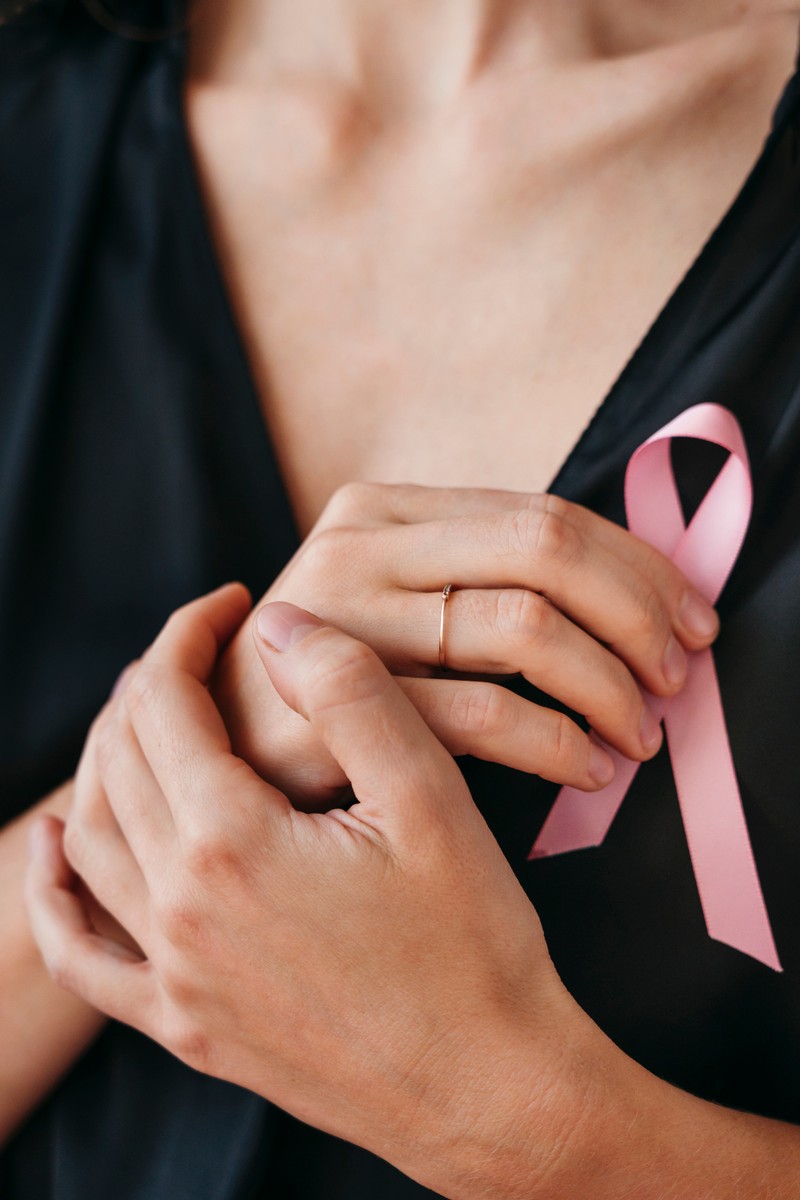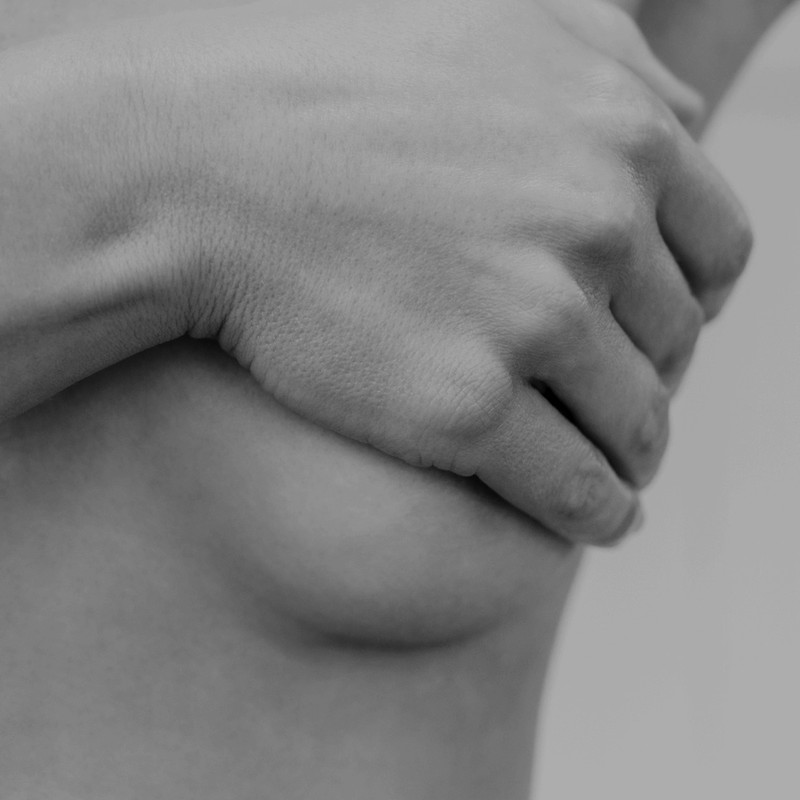What 4 Doctors Want You To Know About Breast Cancer
Getting Into The Habit Is Crucial
“Many women worry about how and when to check their breasts, but the most important thing is to be breast aware, checking them around once a month. Checking in the shower can be an easy way to remember to do it. When you’re in there, place one hand behind your head, and using the pads of your fingers of your other hand, feel the breast tissue from your collarbone to the bra line and across as far as the armpit. Start with a soft, circular motion to check the surface, and then use firm pressure to check deeper in the tissue. Repeat on the other side. You can also check when laying down. Start by lying down on a bed and place a pillow under your right shoulder. Position your right hand behind your head and using a circular motion, move the pads of your fingers gently along the entire breast tissue. Squeeze the nipple to check for irregularities and repeat on the other side.” – Dr Sam Wild, women’s health clinical lead for Bupa Health Clinics
Avoid Checking During Your Period
“There’s no right or wrong way to check your breasts, but you avoid checking them when on your period. It’s important to understand that your breasts change throughout your cycle – this is completely normal. You may experience tenderness or soreness around the time of your period, while certain hormones make your breasts more sensitive, thicker and lumpier at other times. At the start of your pre-ovulatory phase, your ovaries produce oestrogen, but progesterone levels, which are responsible for breast-related changes, are low. This may make the week or so before ovulation the best time to check your breasts. Ultimately, get to learn your breasts and what’s normal for you, so you can then spot anything that’s out of the ordinary.” – Sam
Healthy Breast Tissue Can Be Lumpy
“It’s entirely normal for your breasts to feel glandular and lumpy. A lump, on the other hand, has a different texture – feeling much more like a marble, stone, grape or pea within the breast tissue. It’s also important to understand that many lumps are simple breast cysts and not cancer, although you cannot tell this just by feeling yourself. Any new breast lump must be assessed by a healthcare professional.” – Sam

It's Not Just About How Things Feel
“Over the years, breast cancer awareness has improved, and it is key to reiterate that the most important symptom for people to look out for is finding a lump in their breast. If there is a new lump, it is essential to get it checked out. However, there are less well-known symptoms that could indicate breast cancer too. These include swelling of all or part of the breast (including your armpits); skin changes, such as dimpling or puckering; breast or nipple pain; nipple retraction (sunken into your breast); nipple or breast skin that is red, flaking or itchy; and nipple discharge.” – Sam
It's Important To Remember Your Armpits
“When checking, remember your collarbone and armpits, as breast tissue isn’t just in your breasts. It reaches all the way up to your collarbone and underneath the armpit. As well as checking for lumps, you should also always check for pain in your armpit, and any lumps in these areas, too.” – Dr Chun Tang, medical director at Pall Mall Medical
An MRI Could Be Better Than A Mammogram
“Most breast cancer happens after the age of 50 (over 80% of cases, in fact). In addition, younger women tend to have dense breasts, which can make it harder for mammogram x-rays to pick up any abnormalities. This means that below the age of 50, a mammogram image is harder to analyse. If there is a history of breast cancer in your family, a breast clinic may offer you a genetic test or arrange regular surveillance via an MRI scan to confirm if you have an increased risk.” – Sam
It’s Never Too Late To Get A Genetic Test
“If you think that you may have an increased risk of breast cancer you can talk to your GP, and they can advise if you need to be referred to a breast family history clinic or a genetics centre. Start by gathering as much information as you can – including the type of cancer in your family and the age at which that person was diagnosed. Breast Cancer Now offers fantastic support in this area – this link will help.” – Rachel Rawson, lead cancer nurse specialist at Perci Health
Found Early, Survival Rates Are High
“When found early, breast cancer survival rates are high – almost 100% when found in stage one – so being acutely aware of any changes is vital. When checking your breasts, don’t think of it as a ‘hunt’ to find breast cancer. Instead, see it as part of getting to know what is normal for you and how to be confident of the steps to take if a breast change doesn’t go away. Remember these changes don’t have to be lumps – they can also include veins that look different and patches of skin on your breasts that look like orange peel.” – Dr Corrine Ellsworth-Beaumont, PhD & founder of Know Your Lemons
Finally, The More Information You Can Give Your GP, The Better
“It’s only natural to feel anxious or embarrassed about talking to a GP about your breasts, but if you do notice a lump or anything of concern, book an appointment immediately. Your GP will most likely want to examine your breasts by looking at the breast tissue and checking the areas under your armpits up to your collarbone. Remember you can choose the gender of GP you see and you have the option to take a family member or friend with you. Write down any questions you may have beforehand, write down the date when you first spotted the symptom, and note the last time you had your period. Once your GP has examined you, they may refer you to a breast clinic for further tests. This does not mean your GP thinks you have cancer, and usually, it’ll just be to run further tests.” – Sam
For more information and support, visit Bupa.co.uk, PerciHealth.com, PallMallMedical.co.uk & KnowYourLemons.org. Get further advice from Breast Cancer Care, Breast Cancer Now & Cancer Research UK.
DISCLAIMER: Features published by SheerLuxe are not intended to treat, diagnose, cure or prevent any disease. Always seek the advice of your GP or another qualified healthcare provider for any questions you have regarding a medical condition, and before undertaking any diet, exercise or other health-related programme.
DISCLAIMER: We endeavour to always credit the correct original source of every image we use. If you think a credit may be incorrect, please contact us at info@sheerluxe.com.


